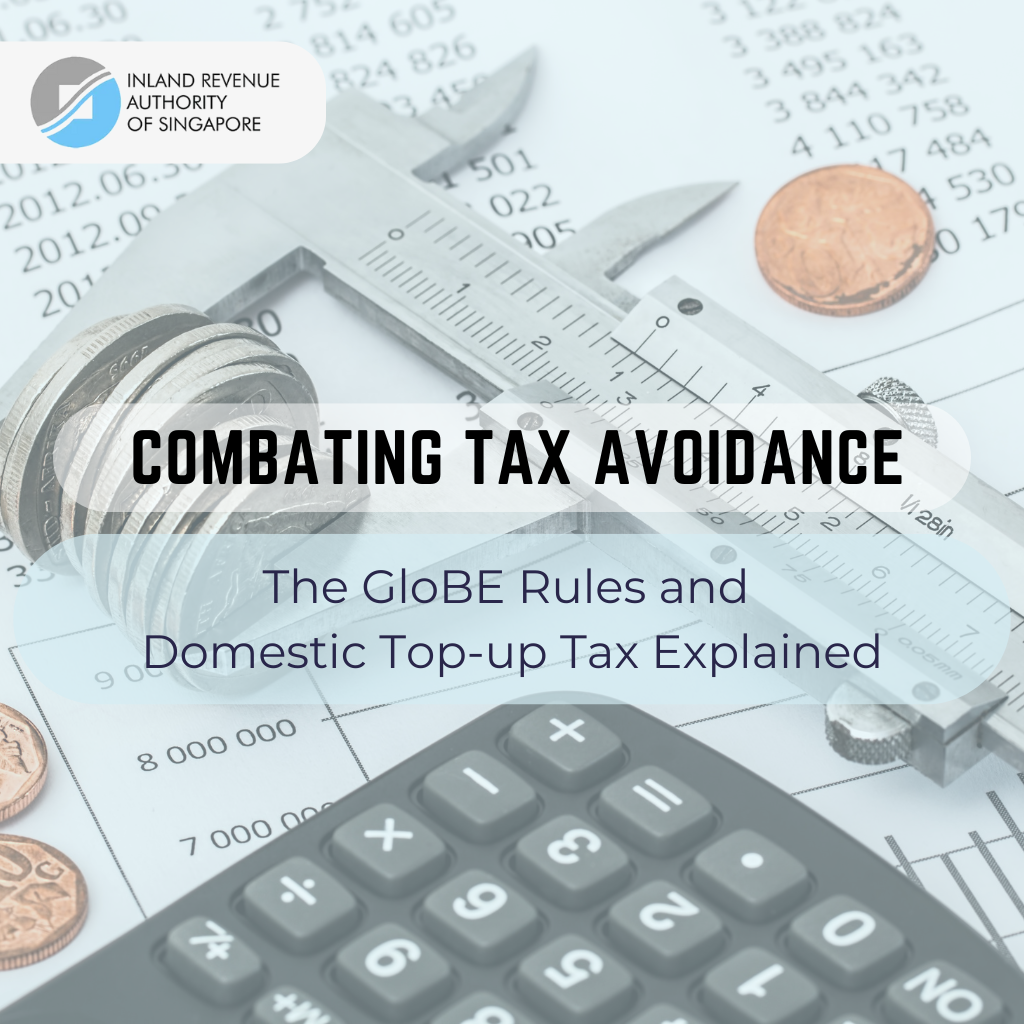 0
0
SHOPPING CART

The GloBE Rules aim to create a unified system for taxing multinational companies. This system ensures they pay at least a minimum tax rate (currently 15%) on their profits in each country they operate in. The rules achieve this by imposing an extra tax if a company’s effective tax rate in a specific country falls below the minimum.
To fight tax avoidance and improve international tax regulations, countries are working together through the OECD/G20’s Inclusive Framework on Base Erosion and Profit Shifting (BEPS).
Singapore, along with over 135 other countries, joined the OECD/G20 Inclusive Framework and a landmark agreement on 8 October 2021. This agreement, known as BEPS 2.0, aims to reform international tax rules and ensure multinational companies (MNEs) pay their fair share of taxes in the digital age.
Pillar Two of BEPS 2.0 consists of two main mechanisms: the GloBE rules and the Subject To Tax (“STTR”) Rule. The GloBE Model Rules, also called GloBE Rules, were released on 20 December 2021, along with their Commentary on 14 March 2022.
The GloBE Rules target large multinational companies (MNEs) operating across multiple countries. These rules ensure MNEs pay a minimum tax rate of 15% on their profits in each jurisdiction. This is achieved through a system of “top-up” taxes, which essentially add extra tax if a company’s effective tax rate in a specific country falls below the minimum.
The GloBE Rules have two main parts: the Income Inclusion Rule (IIR) and the Undertaxed Profits Rule (UTPR).
Countries can also set their own minimum taxes (domestic minimum top-up taxes) to ensure companies operating there pay at least 15%. These taxes count towards the GloBE minimum, reducing any additional tax the parent company would owe under the IIR or UTPR rules.
Singapore announced in its 2024 Budget that it will begin enforcing the Income Inclusion Rule (IIR) and a domestic minimum top-up tax (DTT) for companies’ financial years starting on or after 1 January 2025. A decision on implementing the Undertaxed Profits Rule (UTPR) will be made at a later date.
The IIR and DTT apply to multinational companies (MNE groups) with annual revenue exceeding €750 million for at least two out of the four years before the tax year in question. For instance, to determine if an MNE group qualifies for the IIR and DTT in 2025, their revenue from 2021 to 2024 would be considered.
For more details on the GloBE Rules and Singapore’s Domestic Minimum Top-up Tax (DTT), please refer to here. Businesses seeking in-depth information and guidance can consult the OECD’s GloBE Model Rules, Commentary, and accompanying administrative materials.
The OECD released the GloBE Model Rules and Commentary on 20 December 2021, and 14 March 2022, respectively. For additional resources and the latest updates, please refer to the OECD’s website as discussions at the Inclusive Framework (IF) are ongoing.
If your company needs help filing taxes for the year 2024, or requires assistance with Singapore incorporation, economy, banking, etc., feel free to call/WhatsApp us at +65 90612851 or email us at aceglobalacct@gmail.com. Alternatively, you may leave us a reply using our contact form below.
Keep in touch to receive the latest listing, news updates and special offers delivered directly to your inbox.
